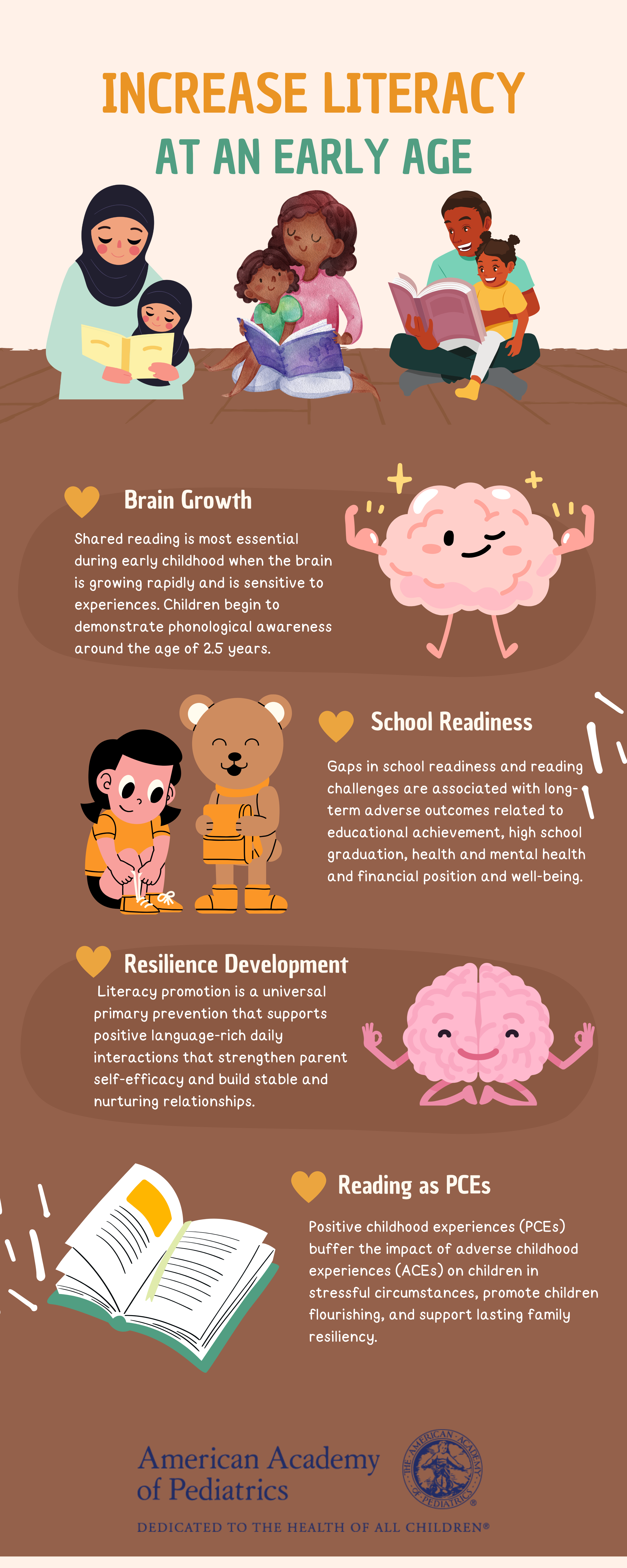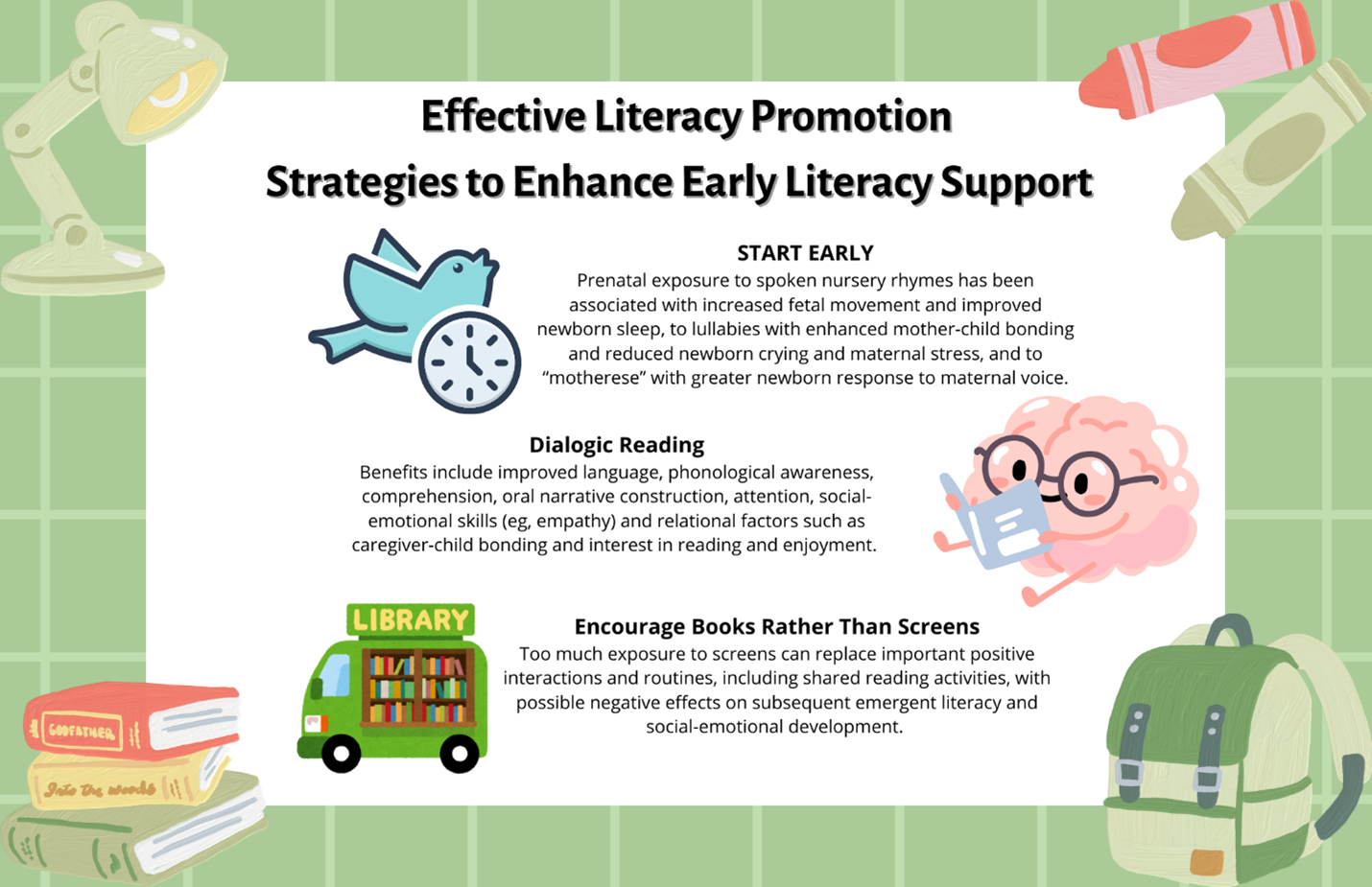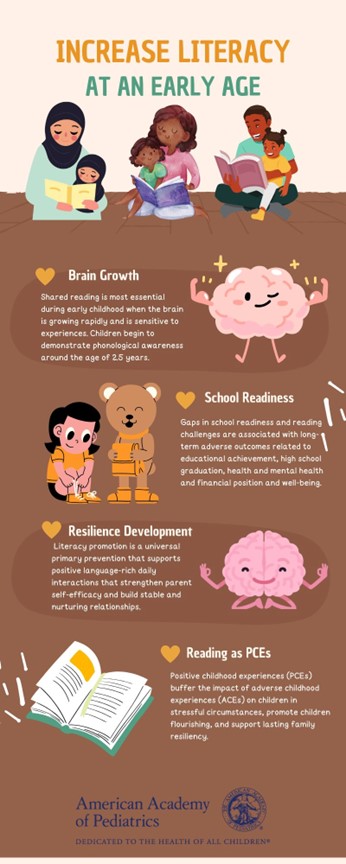Pediatricians Learn All About Kids With This One Weird Trick
“It is never too early to start reading to a child!” Watch the video as Dr Dipesh Navsaria talks about why it is important read early to children.
Literacy Promotion
Research has shown that reading together with infants and young children significantly strengthens their relationships with parents and caregivers, promoting early brain development and attachment during crucial growth stages. This lays the groundwork for school readiness and long-term benefits throughout life.
Pediatricians and advanced care providers play a vital role in encouraging parents and caregivers to establish routines and enjoy conversations around books and stories with their children beginning in infancy. Shared reading, a positive parenting practice, helps build the foundation for healthy social-emotional, cognitive, language, and literacy development.
The American Academy of Pediatrics (AAP) advocates for pediatricians to encourage families to start shared reading beginning at birth and continuing through at least kindergarten, emphasizing the importance of creating a nurturing, language-rich environment.
Below you will find more information on early literacy tools and resources for pediatricians. Resources for parents, families, and caregivers are available on the AAP parenting website, HealthyChildren.org.
Resources
Reach Out and Read
PlayReadVIP
Last Updated
10/25/2024
Source
American Academy of Pediatrics


